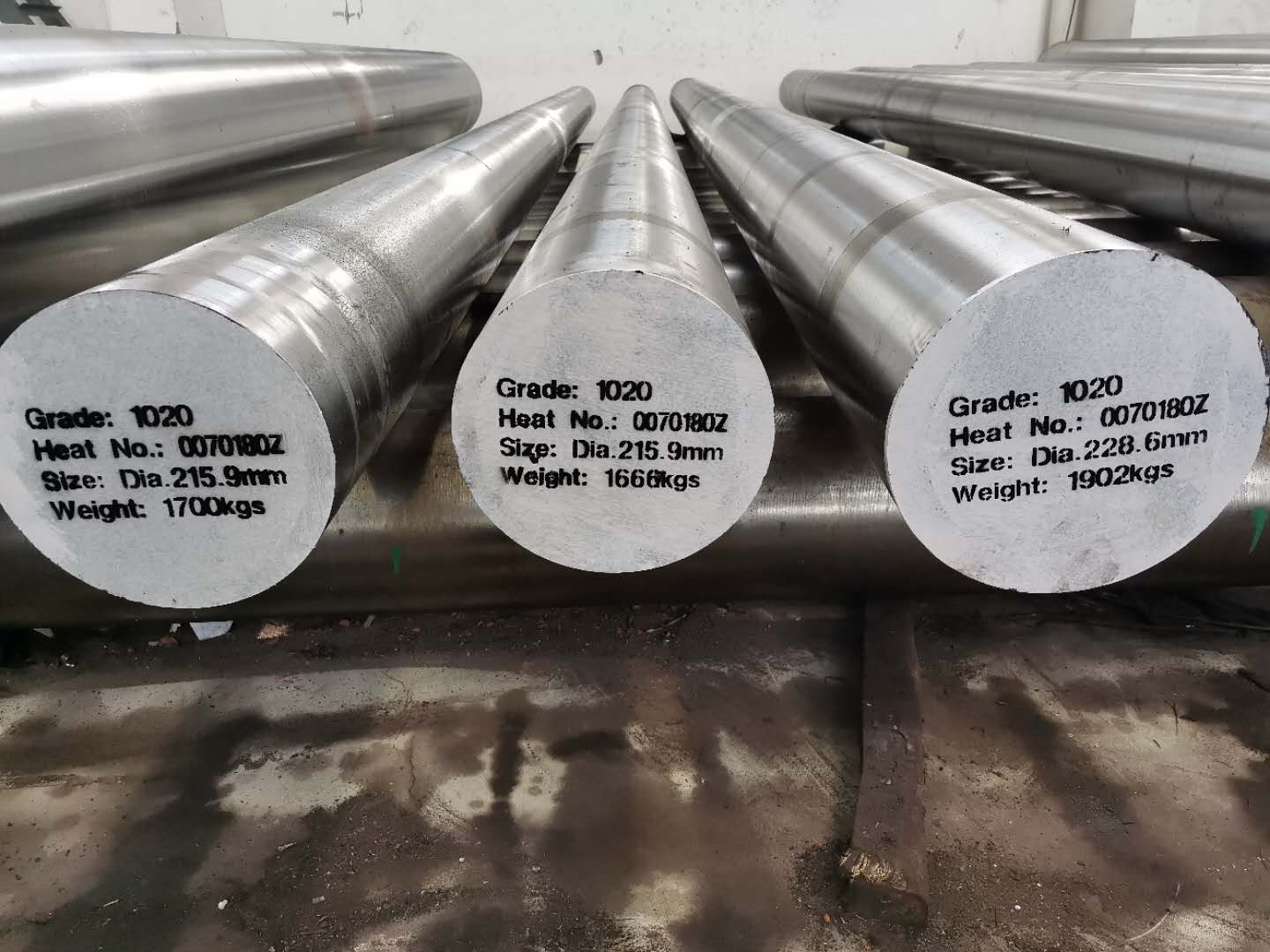AISI 1020 CARBON STEEL | DIN 1.0402 | C22 | S20C
AISI 1020 steel is a low carbon steel which has at least 0.17%C and 0.3%Mn. It has a good combination of strength and ductility and can be carburized,but due to its low carbon content, it is difficult to induction hardening or flame hardening. Due to lack of alloying elements, it is not suitable for nitriding.AISI 1020 steel can be easily machined,and can be welded easily using all of the traditional methods.
1.AISI 1020 steel Supply Form & Size
| Form of Supply | Size(mm) | Length(mm) |
| Round bar | Φ6-Φ1,000 | 3,000-10,000 |
| Square bar | 100x100-600x600 | 3,000-6,000 |
| Plate/Sheet |
Thickness :20-400 Width:80-1,000 |
2,000-6,000 |
| Flat bar/Blcoks |
Thickness :120-800 Width:120-1,500 |
2,000-6,000 |
2.Surface Finish&Tolerance
| Surface Finish | Black-Forged | Black-Rolled | Turned | Grinding | Polished | Peeled | Cold Drawn |
| Tolerance | (0,+5mm) | (0,+1mm) | (0,+3mm) | Best h9 | Best h11 | Best H11 | Best H11 |
3.Chemical Composition&Related Specifications
| Grade | C | Si | Mn | P | S |
| 1020 | 0.17-0.23 | ≤ 0.4 | 0.30-0.60 | ≤ 0.04 | ≤ 0.05 |
| Germany | UK | China | Japan |
| C22/1.0402 | EN3/070M20 | 20# | S20C |
4.Mechanical Property
| properties | Metric | Imperial |
| Tensile strength | 420 MPa | 60900 psi |
| Yield strength | 350 MPa | 50800 psi |
| Modulus of elasticity | 205 GPa | 29700 ksi |
| Shear modulus (typical for steel) | 80 GPa | 11600 ksi |
| Poisson’s ratio | 0.29 | 0.29 |
| Elongation at break (in 50 mm) | 0.15 | 0.15 |
| Hardness, Brinell | 121 | 121 |
| Hardness, Knoop (converted from Brinell hardness) | 140 | 140 |
| Hardness, Rockwell B (converted from Brinell hardness) | 68 | 68 |
| Hardness, Vickers (converted from Brinell hardness) | 126 | 126 |
| Machinability (based on AISI 1212 steel. as 100 machinability) | 65 | 65 |
5.AISI 1020 steel Forging
Forging temperature:950-1200℃,air cooling after forging.
6.Normalizing
- Preheat AISI 1020 steel uniformly and slowly;
- Increase the temperature to 890°C – 940°C;
- Hold suitable time for the steel to be thoroughly heated,
- Cooled in air
7.Annealing
- Heated temperature to 870°C – 910°C
- Hold suitable time for the steel to be thoroughly heated
- Cooled in a furnace.
8.Carburizing
- Heat the temperature between 880°C – 920°C
- Hold for sufficient time in a suitable carburizing atmosphere
- Followed by refining/hardening and tempering processess
9.Core Refining
- Re-heat the temperature at 870°C – 900°C
- Hold until the temperature remains constant all over the section
- Quench in water, oil or brine.
10.Case Hardening
- Re-heat the temperature to 760°C – 780°C after Refining
- Holding until the temperature is consistent all over the section
- Quenched in water.
11.Application
AISI 1020 steel can be largely utilized in all industrial sectors in order to enhance weldability or machinability properties. It is used in a variety of applications due to its cold drawn or turned and polished finish property.It is used for simple structural application such as cold headed bolts,and also used in the case hardened condition.

